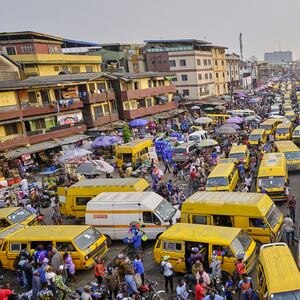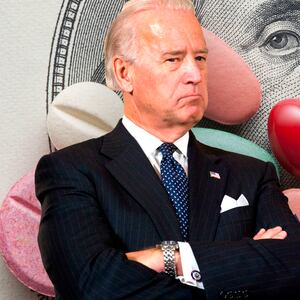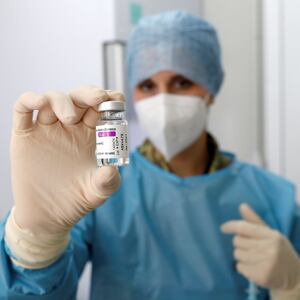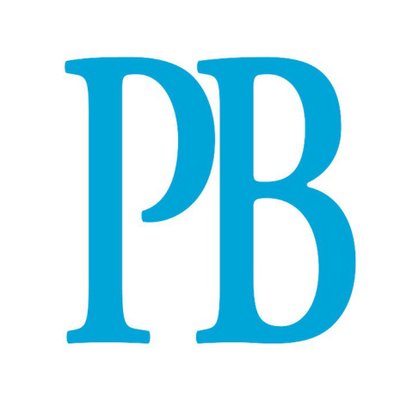Liberian Dr. James Soka Moses remembers the West African region’s devastating Ebola outbreak as if it were yesterday: the roaring ambulances, the patients lying on the floor and spilling outside of treatment facilities, the smell of vomit and the sight of death and suffering that still comes to him in flashbacks seven years later.
“The memory is so fresh because it was just so devastating and took a real toll on life and everything, so it’s hard to just forget that,” he said in a recent interview. Moses, who studied medicine in Liberia and infectious disease control in London, works as a research physician for the Partnership for Research on Ebola Virus in Liberia, or Prevail. The partnership is a collaboration with the Ministry of Health in Liberia and the United States’ National Institute of Allergy and Infectious Diseases (NIAID). Moses also spent the first few months of the COVID-19 pandemic treating patients and continues to work as a university lecturer.
This experience of the West African Ebola outbreak that killed more than 11,000 people and left three of the world’s poorest nation’s health systems reeling, has now motivated Moses and other medics and public health specialists who fought on the frontlines against the virus to sign an open letter to the director-general of the World Health Organization (WHO) before the World Health Assembly meets later this month, calling for vaccine equality. The Assembly is the decision-making body of the WHO.
The letter, which was shared exclusively with PassBlue, comes on the back of U.S. President Joe Biden’s recent announcement that he supports waiving intellectual property protections for COVID-19 vaccines as poor countries struggle to manufacture and gain access to doses. This move followed the call by India and South Africa to the World Trade Organization to enforce the waiver.
Biden’s announcement late last week was praised by the WHO’s director-general, Dr. Tedros Adhanom Ghebreyesus, in a tweet as a “monumental moment in the fight against COVID-19.” Western pharmaceutical companies strongly oppose the transfer of the intellectual property that made the vaccines.
Nearly 3.3 million people have died globally from the virus since the pandemic was declared in early March 2020.
The letter and accompanying petition from the “veterans of the Ebola response” as they call themselves, is expected to be followed by an opinion piece written by Dr. Mosoka Fallah, a Harvard-educated epidemiologist who led contact-tracing efforts during Liberia’s Ebola epidemic. Health experts, including Fallah, will hold an online international panel on global vaccine equity, hosted by the Center for Population-Level Bioethics at Rutgers University in New Jersey on May 12.
They will launch the letter at the event, almost two weeks before the 74th session of the World Health Assembly is to be held in Geneva, from May 24 to June 1.
Fallah, who spearheaded the letter calling for vaccine equality, has been gathering support since November from academics and public health specialists from the U.S., India, Europe and Africa and the colleagues he worked with during the Ebola pandemic.
The letter calls on the Assembly to vote in favor of ensuring that all countries that have ordered excess doses of COVID-19 vaccines donate the surplus to COVAX, a worldwide initiative led by the WHO to ensure COVID vaccines are distributed fairly. The letter also calls on G20 countries to contribute 10 percent of their expenditure on vaccines to COVAX and for pharmaceutical companies to use a “multi-tiered vaccine pricing for Low and Medium Income Countries (LMIC),” so that vaccines can become more available and affordable to poorer countries. The group behind the letter also supports the waiving of patent protection, backed by Biden.
“National and global security is at risk and we no longer have the luxury of time,” the letter states. “Countries that are hoarding or having excess vaccines are shortsighted because it actually increases the risks of mutations from unvaccinated nations, rendering their stockpiles obsolete and thus fueling the pandemic.”
“As we learned through the Ebola pandemic, poverty and geography should not be the determinants of access to life-saving vaccines,” the letter notes.
Priti Patnaik, a journalist and editor who heads the Geneva Health Files, a Swiss-based investigative website that has been closely monitoring COVAX and issues surrounding intellectual property and distribution of vaccines, said that COVAX has been largely unsuccessful and that its challenges were mostly anticipated by civil society organizations.
“COVAX and international partners failed to assess the risk of bilateral deals that put this multilateral initiative at the back of the priorities for manufacturers,” she wrote in an email. “Subsequently vaccine diplomacy has undermined this further. Some rich countries who had pre-ordered more doses than they needed, are not even sharing excess vaccines through the COVAX facility.”
“COVAX claims they have the logistics to deliver vaccines, but going forward they must expand their base of manufacturers,” she added. “However, it seems it is already too late, given that there is rising mortality in many parts of the world that is also contributing to the further spread of the disease and accompanying mutations. In so far as addressing the most acute phase of the pandemic is concerned, international agencies have not been able to effectively rise up to the challenge.”
While case numbers in small African countries like Liberia remain low—only 2,114 cases have been documented there so far—concern is growing among the WHO and other global and regional health organizations that African countries do not have access to enough vaccines and are not rolling them out quickly enough.
Fallah has specifically expressed concern that there is not enough testing being done and the count of cases is too low and likely to be inaccurate.
In March, Liberia, a country of roughly five million people, received 96,000 doses of vaccine via COVAX. With vaccines arriving at that rate, widespread inoculations could take years, leaving small countries seriously behind, Fallah and others argue.
“COVAX is just a way for white men to absolve their conscience,” he said.
Other experts have used more temperate language.
“The inequitable distribution of vaccines is not just a moral outrage, it is also economically and epidemiologically self-defeating. I have said this many times and the gap is very tragic between the have and have-nots,” Tedros said at the emergency virtual meeting of African ministers of health on COVID-19, held on May 8.
Meanwhile, Moses and the Ebola medics who signed the letter to the World Health Assembly are closely monitoring an Ebola outbreak across the border from Liberia, in Guinea, announced in February. He and others hope the virus that devastated Liberia, Guinea and Sierra Leone from 2014 to 2016 is contained, just as they hope the COVID pandemic will be controlled. But he thinks that Western countries need to step up their work to stop the pandemic in countries like Liberia, as they belatedly helped to halt Ebola seven years ago in West Africa.
He continues to work on projects studying the ongoing effects of Ebola on survivors, as part of the Prevail collaboration with the NIAID and the Ministry of Health in Liberia, which has involved vaccine trials. The project has expanded to include people with HIV and malaria, and COVID-19 survivors have been added to the list.
“Liberia is a country that is still trying to recover from effects of EVD,” Moses said, referring to the Ebola virus disease. “We know that there are sophisticated tools; now it’s time for the West to contribute. We helped them to scale up research and perfect vaccines, they need to give back.”
“When you have a devastating pandemic that spreads across the border and everywhere else, that’s not the time to be nationalistic, that’s the time in which the world becomes a global village and we need to support each other.”









